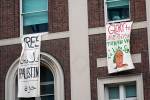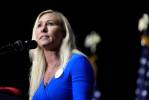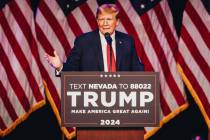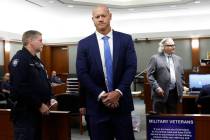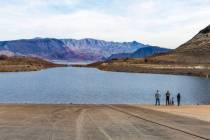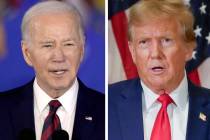Democrats unveil tax, spending plans for Nevada
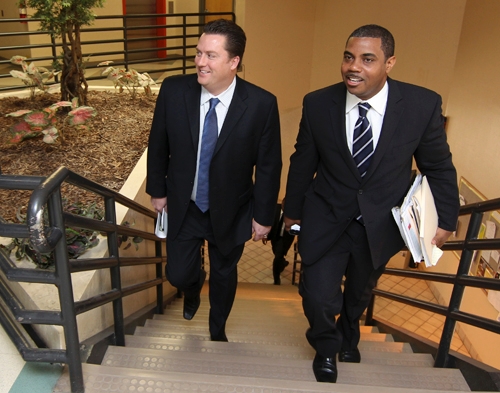

CARSON CITY — Nevadans could pay more for everything from plumbing to car repairs, from legal services to yard upkeep to raise money for schools and social services under a $1.5 billion plan detailed by Democratic lawmakers Thursday.
The proposal includes a new tax on services and another on business revenue.
They would boost state general fund spending for 2011-13 by about $920 million more than the $6.1 billion budget proposal from Republican Gov. Brian Sandoval.
Democrats argue their plan is what is needed to adequately fund K-12 schools and colleges and preserve services to low-income elderly and children.
Sandoval and Republican lawmakers adamantly oppose raising taxes on business and residents. As long as they remain united, they can block the proposal entirely.
They say the Democratic plan threatens to undermine Nevada’s potential to recover from a crippling recession that already has wiped out about 170,000 jobs and forced countless businesses to shut down.
The Democratic proposal came on day 88 of the 120-day legislative session, meaning Democrats have 32 days to persuade at least two Assembly and three Senate Republicans to defect from Sandoval for it to become law.
They also would have to keep their own members behind the plan and persuade a recession-weary electorate to trust the Legislature to alter the state tax system without overburdening everyday citizens.
"I just think the consumer is getting to a threshold where it is tough for anybody to swallow anything extra right now," said Mike Scolari, a partner in RHP Mechanical, a Reno-based plumbing, heating and air conditioning contractor.
Scolari said if the state imposed a tax on services — the highest rate Democrats discussed Thursday was 4 percent — it would mean more costs for customers and potential wage cuts for workers.
That’s because, in addition to the tax passed along to customers, he estimates another 2 percent to 3 percent in administrative costs, which would add to the cost of labor.
The sales tax on services might exempt nonelective health care, rent and utilities, Democrats said. But there is no comprehensive list.
The plan would phase out the state’s modified business tax based on payroll in favor of a so-called margin tax, a concept that backers said has been adopted in Texas.
Exempting the first $1 million in revenue, the 1 percent tax rate would then be based on 70 percent of total revenue; total revenue minus wages and salaries paid; or total revenue minus the cost of goods sold. The tax would apply to whichever option is less.
Add it up, and it is a lot to bear in a bad economy, Scolari said.
"It is not going to be insurmountable, but it is definitely difficult to pass anything along," said Scolari, whose labor force has shrunk from about 400 to about 160 during the recession. "You are lucky in a service industry to net 4 or 5 percent. And we haven’t been that lucky in a while."
EDUCATION, DIVERSIFICATION
Advocates for the plan presented at Western Nevada College say the short-term pain of new taxes would pay dividends in the long haul by increasing government spending on education and diversifying the state’s revenue sources beyond sales, gambling, mining and insurance taxes.
Average annual general fund spending per Nevada resident peaked at $1,241 in 2006, said Jeremy Aguero, a principal at the Las Vegas economics research firm Applied Analysis who presented charts at the meeting.
That number fell to $908 this year and under Sandoval’s plan would increase to $932 by 2013.
The result of less spending has been cuts in pay for state workers, reductions in the amount of money set aside for per-pupil spending in K-12, and fewer available classes for students at state universities and colleges.
Republicans admit the cuts are painful but say economic recovery will be quicker and more robust if the state keeps tax rates low so businesses are more likely to hire workers and generate tax revenue.
Supporters of more taxes say that’s not good enough. They argue Nevadans can’t count on booming casinos and rampant construction growth to propel the economy forward.
"Those days are gone, and they are not coming back," said Dan Klaich, chancellor of the Nevada System of Higher Education.
The system stands to recover about $123 million of $162 million in cuts under the Democrats’ plan as opposed to $20 million under Sandoval’s proposal.
"What is happening right now in the Nevada economy is a fundamental reorganization," Klaich said. "We are resetting the base."
Others said the Democrats’ proposal is important because it would provide money to meet demand for social services that are especially important during times of low employment.
Sandoval found savings to restore about $50 million of cuts to programs for autism and to assist low-income elderly people and foster children. But Democrats want to boost that to about $174 million to maintain mental health courts and other programs.
"What we do here in Carson City will ripple across our state," said Senate Majority Leader Steven Horsford, D-Las Vegas. "This is not about politics. This is not about winning or losing a legislative battle. It is about the quality of life."
Assembly Speaker John Oceguera, D-Las Vegas, said the proposal also replaces about $615 million in one-shot revenues and funding diversions Sandoval wants to use to support ongoing operations that Democrats say will create another funding hole for legislators in 2013.
"Let’s not be back here next session facing the same tough choices," Oceguera said. "With the plan we present to you today we can avoid that."
HOW IT WOULD WORK
The Democratic plan calls for a number of changes to the state’s revenue system and would increase government spending.
In addition to creating the service and business revenue tax, the Democrats want to postpone the expiration date on taxes worth about $626 million.
The sunset money would be available immediately to support programs until the new sales and revenue taxes are up and running.
Also, proponents say revenue from the new taxes would allow state government to reduce the sales tax on goods by 1 percent and eliminate the modified business tax, an unpopular levy pejoratively called the "tax on hiring."
The goal, backers say, is to create a more equitable tax system that pays for increased service levels with fewer budgeting gimmicks.
"The goal of course is to have the widest base possible and the lowest rate possible," Aguero said.
POLITICAL PROBLEMS
Despite the upbeat attitude toward the plan at the Democratic-organized unveiling event, conservatives remain skeptical.
They say Democrats refuse to seriously consider major government reforms presented by Assembly Republicans and Sandoval that could save taxpayers hundreds of millions of dollars and improve education outcomes.
Those proposals include eliminating public-sector collective bargaining, striking provisions in state law that result in frivolous construction defect lawsuits, and doing away with "last in, first out" layoff procedures in public schools that can result in lower-paid and better performing teachers getting fired while more expensive, less skilled educators remain on the job.
Conservatives also say they don’t think Democrats will actually follow through with tax reductions and spending reforms.
Robert Uithoven, a lobbyist for the conservative business and political group Keystone Corp. of Las Vegas, said Democrats are already trying to break a promise they made in 2009 to allow the sunset taxes to expire.
"Their own plan demonstrates they can’t keep a promise to the taxpayer," Uithoven said. "So why should taxpayers believe any more promises?"
Democrats also face a major political problem. They don’t have the two-thirds majority needed to approve a tax increase and override a Sandoval veto.
Republicans in both houses have unanimously backed the governor’s opposition to tax and fee increases.
They say Nevadans, who voted overwhelmingly in favor of Sandoval in November after he campaigned on a no-tax promise, have told the politicians what they think of taxes.
"Right here, right now supporting the governor and his budget is the right thing to do," said Sen. Michael Roberson, R-Las Vegas, who also campaigned against tax increases. "I am going to do exactly what I said I was going to do in the campaign. That’s why I was elected."
One lobbyist with Democratic and Republican clients said Democrats could show they are serious by putting dramatic GOP reforms on the table despite flak they might get from unions and other left-leaning constituents.
"If you wanted to be bold and aggressive, you could probably sell it to the voters," the lobbyist said.
The Associated Press contributed to this report. Contact reporter Benjamin Spillman at bspillman@reviewjournal.com or 702-477-3861.
Nevada Democrats’ budget funding options presentation






